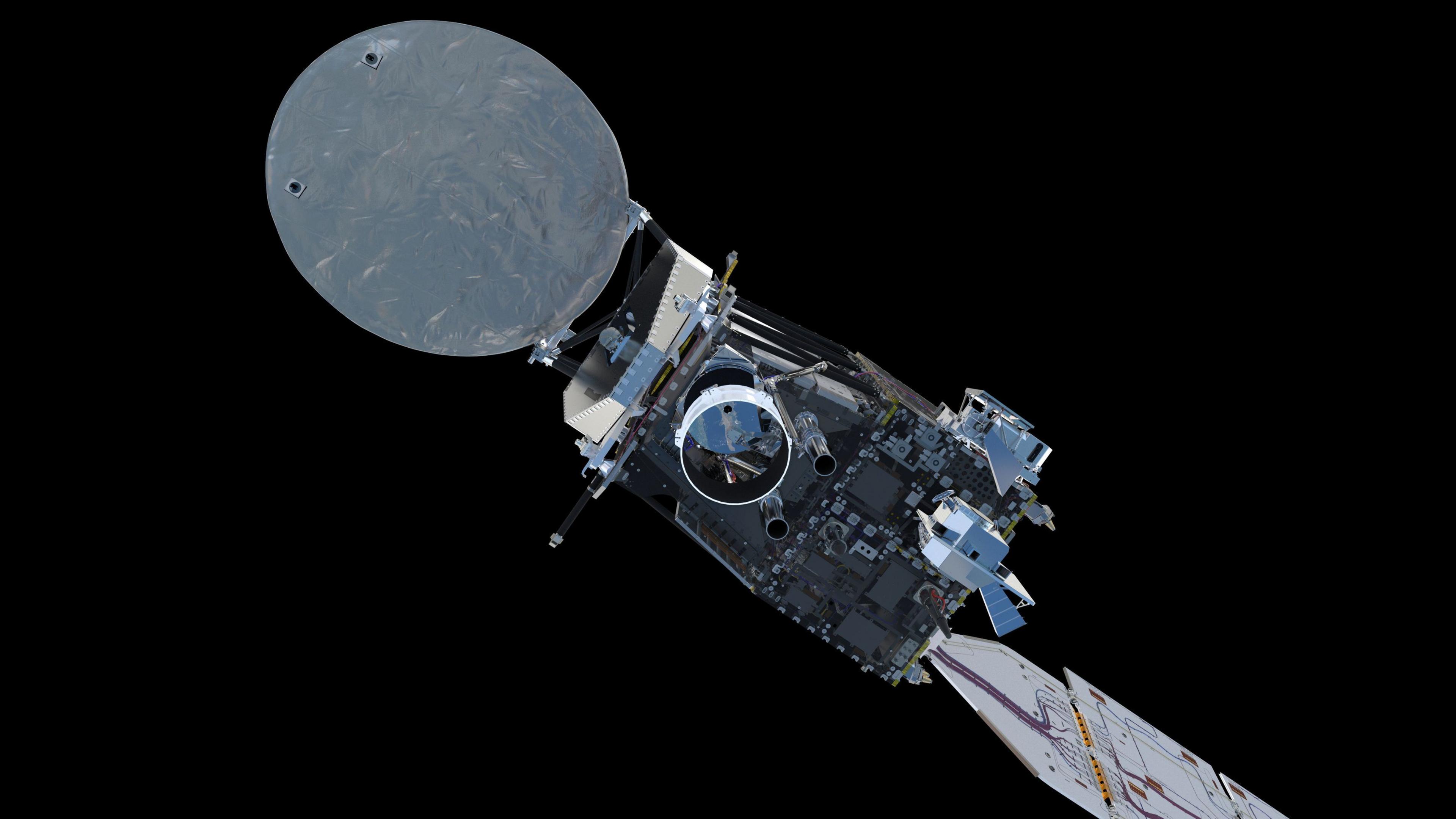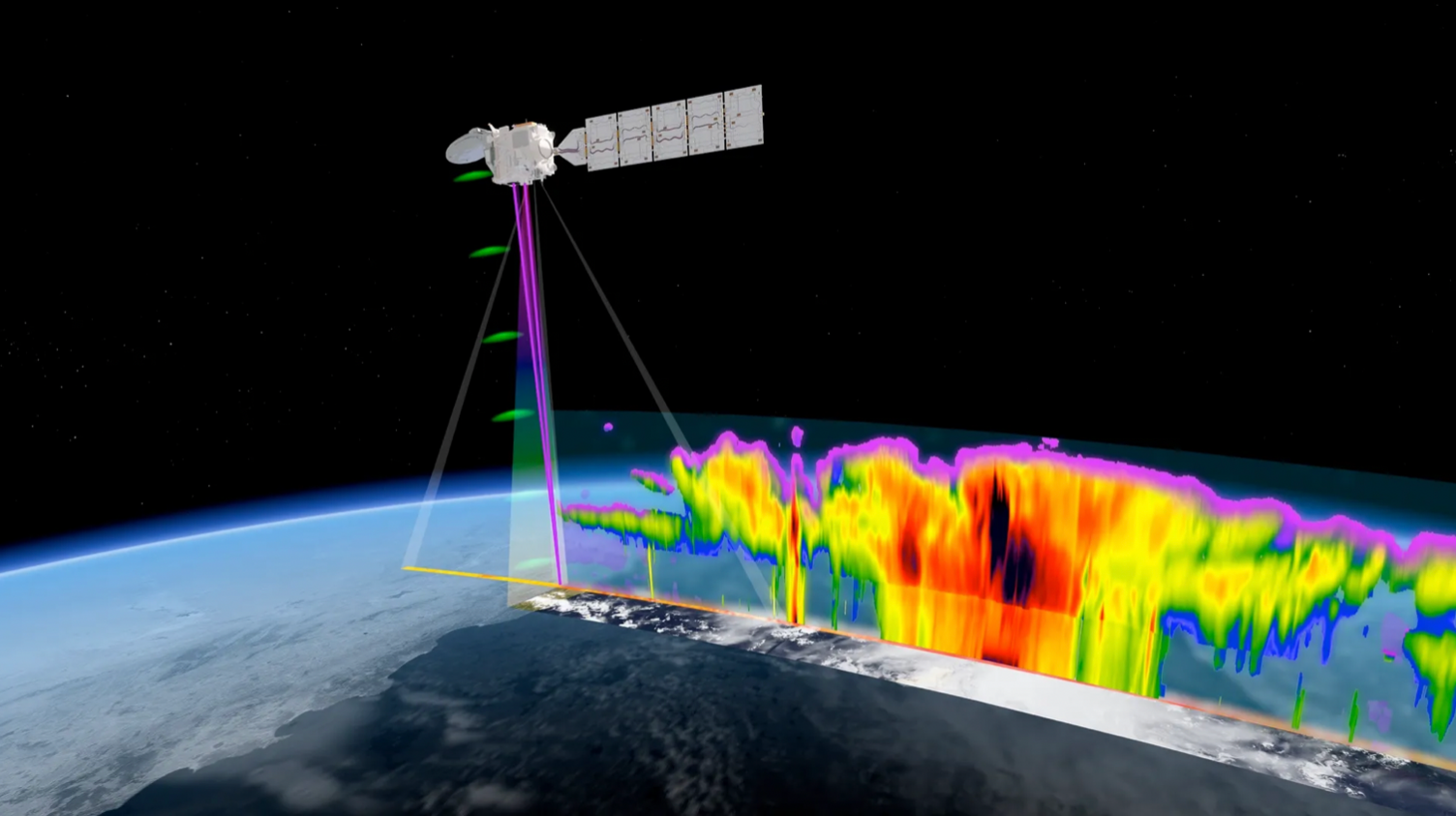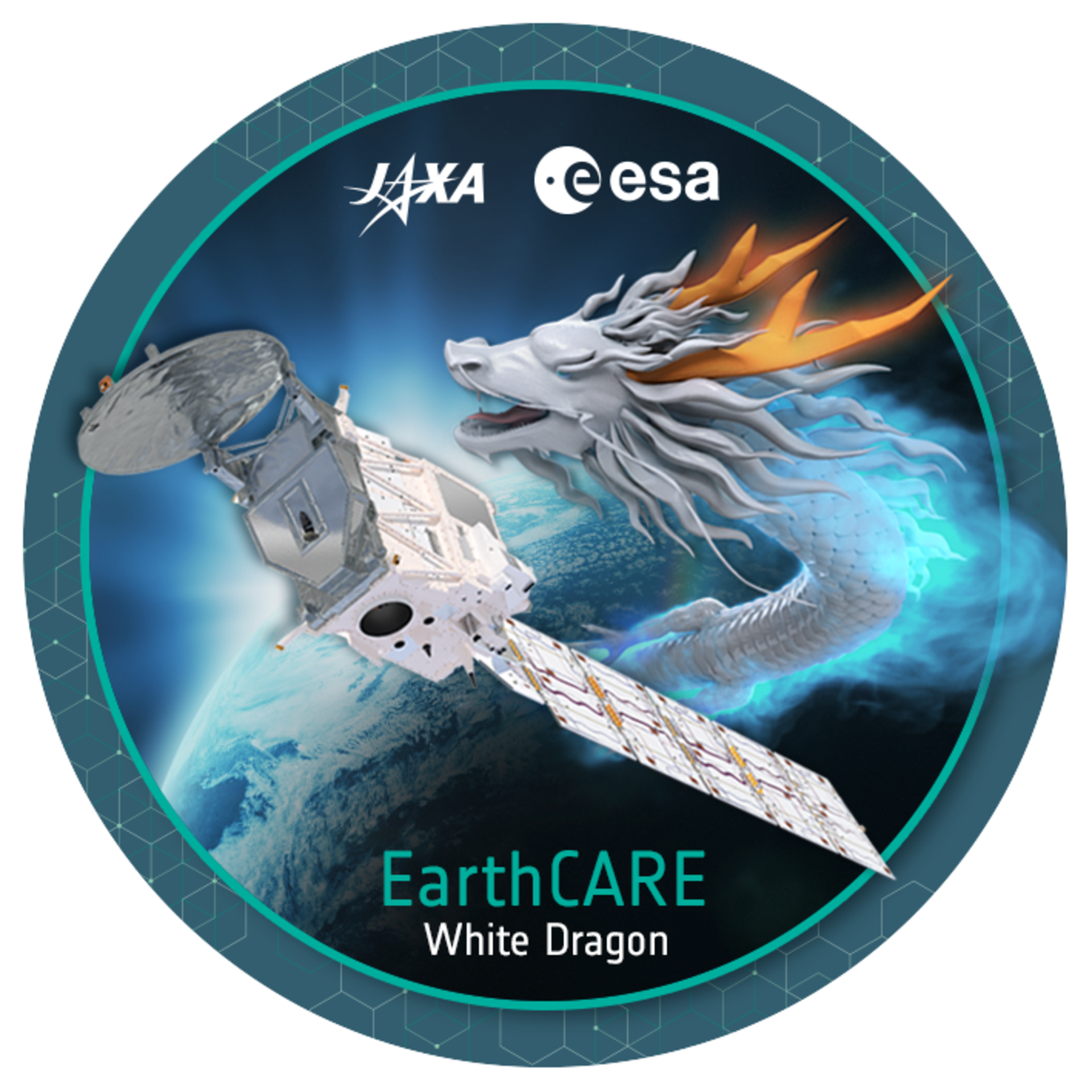Satellite launched to find out how clouds affect our climate

The 2.3-tonne satellite was sent up from California on a SpaceX rocket
- Published
Will clouds help cool or warm our world in the years ahead?
A new satellite was launched into space on Thursday on a mission to find out.
The Earthcare satellite will study clouds, in the hope that it can be used to make more accurate weather forecasts and reliable predictions about Earth’s climate.
The two-tonne satellite is a collaboration between the European Space Agency (ESA) and Japan's JAXA space agency and will orbit nearly 250 miles (400 kilometres) above Earth for 3 years.
More stories:
Satellite falls to Earth after 30 years in space
- Published22 February 2024
Perseverance rover snaps cool Mars solar eclipse
- Published16 February 2024
Plan for wooden satellite to blast-off into space
- Published18 February 2024
What will the Earthcare satellite be used for?

Earthcare will use four instruments to measure clouds and aerosols
Scientists have lots of questions about clouds and how they affect our climate.
But what we do know is that they play a key role in regulating the temperature of our atmosphere.
Scientists are keen to discover how clouds might change over time as the Earth's atmosphere gets warmer due to climate change, and this is where the Earthcare satellite will help.
The name Earthcare is short for Earth Cloud Aerosol and Radiation Explorer.

The Japanese space agency has nicknamed the mission "Hakuryu" or "White Dragon"
The idea of a satellite like Earthcare was first suggested over thirty years ago by a scientist from Reading university, Prof Anthony Illingworth.
He said it was a dream come true to see the satellite finally fly.
"It's been a long and challenging journey with an amazing team of dedicated scientists and engineers from the UK and abroad," he said in a statement.
"Together, we've created something truly remarkable that will change the way we understand our planet."
